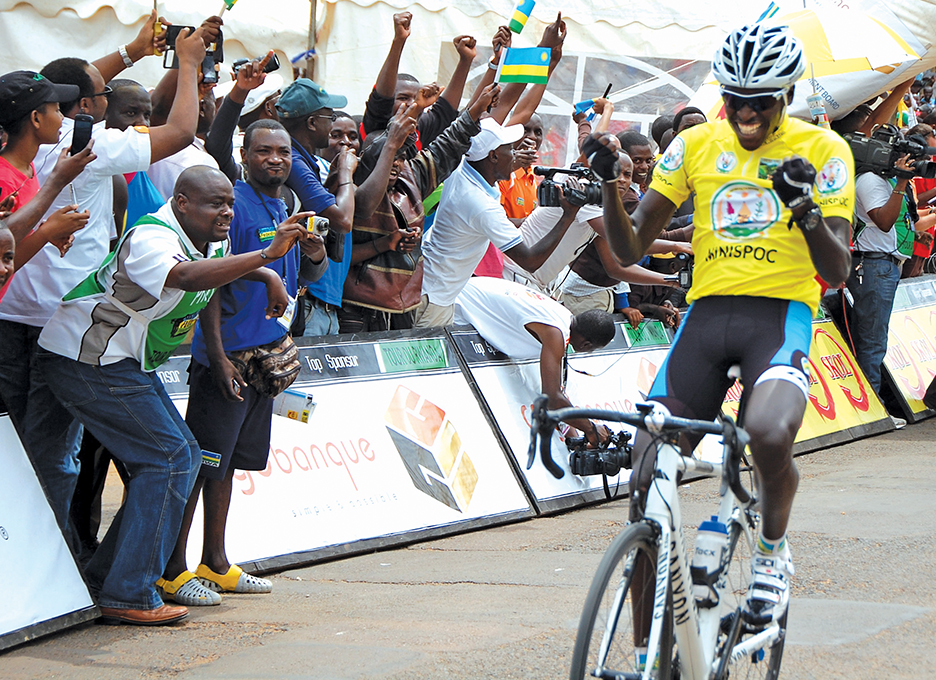Rwandan cyclist Valens Ndayisenga celebrates after crossing the finish line to win the Tour of Rwanda. [TOUR OF RWANDA]
BBC NEWS AT BBC.CO.UK/NEWS
Dubbed “the land of a thousand hills,” Rwanda can leave even the toughest cyclists gasping for air. Competitors on the eight-day Tour of Rwanda cross 934 kilometers, climbing 19,500 meters, with peaks rising to 2,500 meters. Cyclists pedal through coffee, tea and banana plantations.
Cycling in Rwanda, as in the rest of Africa, is growing as a sport. And the latest Tour of Rwanda, staged in November 2014, is growing as well.
“We started with five riders and five-speed cycles from the 1980s, but most of the gears were not working; they were wrecks,” said Jonathan Boyer, the first American to have raced the Tour de France in 1981, and who in 2006 became the first coach of Team Rwanda.
Competitive cycling in Rwanda “grows gradually,” Boyer said, explaining that many racers are former bicycle taxi drivers who transport people and goods, building strong muscles pedaling up Rwanda’s rolling hills.
The Rwanda Cycling Federation has about a hundred members. In June 2014, the country opened a training center in the northern town of Musanze with modern equipment.
“This is a country where the hills are really tough,” said Cameroonian competitor Damien Tekou.
Organizers estimated that more than 2 million spectators saw the 2014 event, nearly a fifth of Rwanda’s 11 million people. The hometown fans were treated to a historic performance as Rwandan cyclist Valens Ndayisenga won the event, becoming the first Rwandan to do so. “The country has been behind us,” Ndayisenga said. “Every day I would wake up with a conviction that we can do it. There were many people encouraging us, and I am glad this has paid off.”
The race is expanding. Fourteen teams took part in 2014, with cyclists from across the continent — including Algeria, Burundi, Eritrea, Ethiopia and Morocco — as well as from France, Germany and Switzerland.

